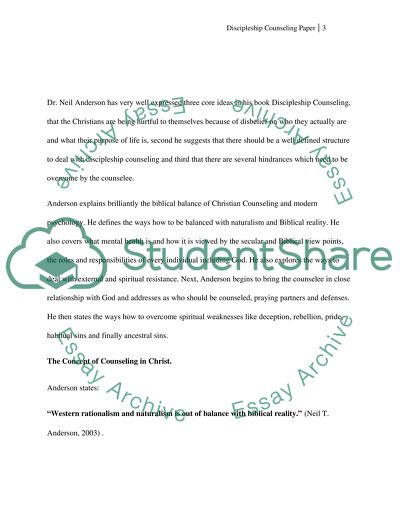Cite this document
(“Discipleship Counseling Assignment Example | Topics and Well Written Essays - 1250 words”, n.d.)
Retrieved from https://studentshare.org/psychology/1449672-discipleship-counseling-paper
Retrieved from https://studentshare.org/psychology/1449672-discipleship-counseling-paper
(Discipleship Counseling Assignment Example | Topics and Well Written Essays - 1250 Words)
https://studentshare.org/psychology/1449672-discipleship-counseling-paper.
https://studentshare.org/psychology/1449672-discipleship-counseling-paper.
“Discipleship Counseling Assignment Example | Topics and Well Written Essays - 1250 Words”, n.d. https://studentshare.org/psychology/1449672-discipleship-counseling-paper.


